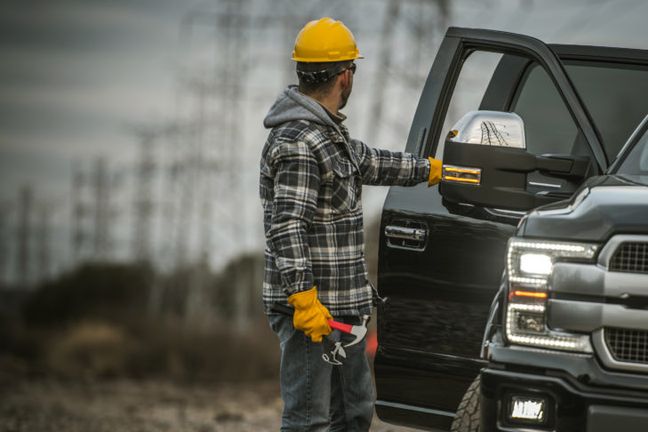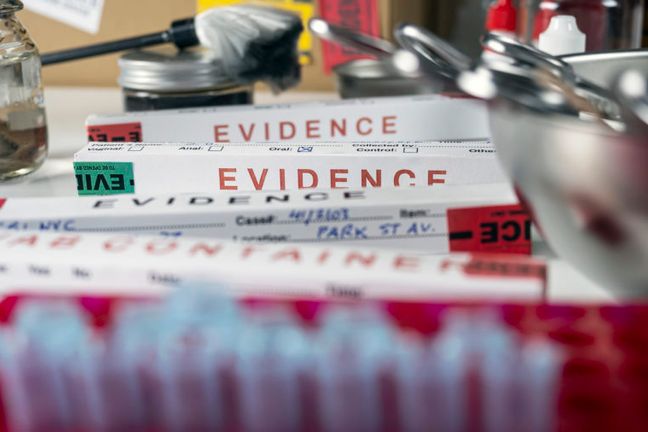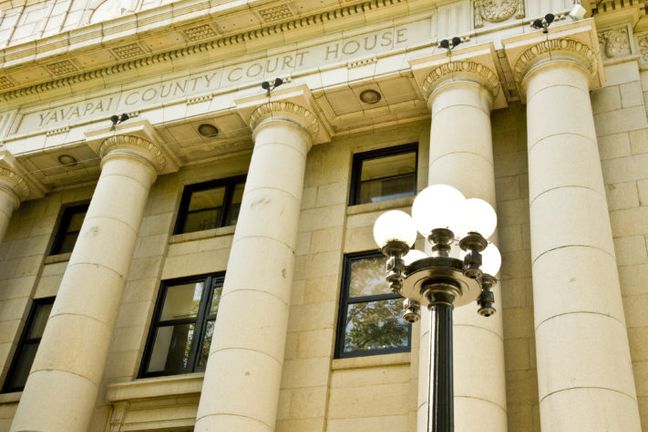A recent California Court of Appeal decision overturned an order sustaining a demurrer in favor of commercial liability carrier regarding coverage for COVID-19 business loss. In an unpublished opinion issued on December 14, 2022, the Second District Court of Appeal held the complaint, which alleged COVID-19 droplets caused physical damage to property, was sufficient to survive demurrer and potentially trigger coverage.
The case is Shusha, Inc. v. Century-National Insurance Company (“CNIC”) 2022 WL 18110247. The holding in Shusha doubles down on the Second District Division Seven published opinion, Marina Pacific Hotel and Suites, LLC v. Fireman’s Fund Insurance Co. issued earlier in 2022.[i] The Second District’s decisions in both Marina and Shusha are in direct conflict with a decision from Division Four of the same district, United Talent Agency v. Vigilant Insurance Company, which upheld an order below sustaining a demurrer on the same issue.[ii] The conflicting appellate level decisions on the same issue in different divisions of the same Appellate District makes this issue ripe for California Supreme Court review.
-
Underlying Facts
Shusha Inc. owns La Cava, a restaurant in the Sherman Oaks area of Los Angeles. CNIC furnished a policy of commercial property and general liability insurance to Shusha. The policy provided CNIC would cover the actual loss of business income sustained due to the necessary suspension of operations during a period of restoration when the suspension was caused by “direct physical loss of or damage to property.”[iii] The policy also afforded coverage for loss of business income caused by action of civil authority that prohibits access to the premises “due to direct physical loss of or damage to property, other than at the described premises, caused by or resulting from any covered cause of loss.”[iv]
On March 4, 2020 the governor issued a state of emergency due to the rapid spread of COVID-19[v]. On March 15, 2020, the mayor of Los Angeles issued a public health order preventing restaurants from serving food on their premises.[vi] On March 19, 2020, the governor issued an executive order requiring residents to shelter in place.[vii] On the same day, the Los Angeles mayor issued a public “Safer at Home” order, finding “the COVID-19 virus can spread easily from person to person and it is physically causing property loss or damage due to its tendency to attach to surface for prolonged periods of time.”[viii] The governor did not lift the shelter-in-place order allowing restaurants to reopen for outdoor dining until January 5, 2021.[ix]
In compliance with the March 15, 2020 orders, La Cava suspended business operations on March 16, 2020.[x] Two days later, on March 18, 2020, La Cava submitted a claim to CNIC for loss of income due to the virus and related public orders.[xi] La Cava reopened on April 1, 2020 in a limited capacity for take-out and delivery only.[xii] In a letter dated April 9, 2020, CNIC denied the claim because La Cava’s suspension of business was not caused by a “direct physical loss of or damage to property” at the restaurant, and the government directives did not prohibit access to the restaurant resulting from a loss or damage at premises “other than your designated premises.”[xiii]
On July 7, 2020, La Cava filed suit against CNIC for declaratory judgment, breach of contract, breach of the implied covenant of good faith and fair dealing, and unfair business practices in violation of the Unfair Competition Law.[xiv] Each cause of action was based on CNIC’s denial of coverage for business income losses due to the COVID-19 pandemic.[xv] Specifically, the complaint alleged La Cava suffered physical loss of or damage to its dining rooms and other property caused by the actual presence of virus droplets in the air and on the surfaces of its restaurant including on the walls, floors, tables, chairs, silverware, dishes, and other surfaces.[xvi] The complaint further alleged 10 commercial businesses in Sherman Oaks had employees with COVID-19, and three La Cava employees had COVID-19 at various times throughout the year.
-
The Demurrer
CNIC demurred to the complaint, arguing the phrase “direct physical loss or damage to property” in an insurance contract requires physical alteration of the insured property.[xvii] CNIC cited nearly two dozen decisions from federal district courts in California sustaining demurrers, reasoning COVID business closures did not result from direct physical loss of or damage to property.[xviii] Based on the federal court decisions, CNIC argued its denial of coverage was based on a genuine dispute as to the existence of coverage.[xix] On July 16, 2021, the trial court entered a judgement of dismissal after sustaining CNIC’s demurrer.[xx] La Cava appealed.
-
Analysis
The Court of Appeals began its analysis by discussing the rules of contract interpretation for insurance contracts.[xxi] When a policy provision is ambiguous, California courts interpret the provision broadly in favor of the insured.[xxii] The court then discussed its holding in Marina, which reversed the trial court’s order sustaining the insurer’s demurrer.
The court reasoned the undefined term “direct physical loss or damage” meant the owners had to allege an external force acted on the insured property, causing a “distinct, demonstrable, physical alteration of the property.”[xxiii] California’s liberal pleading standard is key to the court’s analysis. This standard requires the court to accept pleading allegations as true regardless of the plausibility of the allegations.[xxiv] As in Marina, here, the court held La Cava’s pleading allegations of direct physical loss to the property caused by COVID-19 virus droplets were sufficient and reversed the trial court’s order sustaining CNIC’s demurrer.[xxv]
The court distinguished numerous federal district court decisions which either did not have similar factual allegations or, if they did, the federal pleading standards allowed the court to consider the plausibility of the allegations.[xxvi] The court distinguished two published California Court of Appeals decisions affirming an order sustaining an insured’s demurrer. Those cases involved allegations of loss of use as a result of government-ordered closures to limit the spread of COVID-19 and did not include a claim the virus caused physical damage to the insured property.[xxvii]
However, the court was unable to distinguish the holding in United Talent Agency v. Vigilant Ins. Co. decided by colleagues in Division Four of the Second District because the pleading allegations were similar to those of La Cava.[xxviii] However, the Shusha court disagreed with its colleagues’ approach in Vigilant.[xxix] The Vigilant court upheld an order sustaining the insurer’s demurrer because the presence of a virus which exists worldwide wherever infected people are present can be mitigated through disinfection practices, social distancing, vaccination, and use of masks and therefore the allegations of the virus causing direct physical loss or damage were not sufficient as a matter of law.[xxx]
Finally, the court held La Cava sufficiently pleaded bad faith notwithstanding the genuine coverage dispute because La Cava alleges CNIC summarily denied the claim in a form letter sent just three weeks after claim submission without conducting any investigation of whether the virus had caused physical damage to the property.[xxxi]
-
Takeaway
Although the Shusha case is not citable authority, it is instructive for providing further insight into this court’s reasoning in the previous Marina holding and highlighting the difference of opinion on this issue even within the same appellate district. The law on this issue is dynamic and is in a nascent stage of development. With a clear split in authority between the holdings in Marina/Shusha and Vigilant, the issue of whether allegations of virus droplets causing physical damage to property are sufficient to support a breach of contract and bad faith claim against an insurer is ripe for Supreme Court review.
Whether CNIC will file a writ of certiorari for Supreme Court review remains to be seen. However, on January 3, 2023, because of the split in state appellate court decisions, the Ninth Circuit certified a question to the California Supreme Court asking for guidance on whether the actual or suspected presence of COVID-19 at an insured property can be “direct physical loss or damage” to trigger coverage.[xxxii] Until the Supreme Court weighs in on this issue, commercial property insurers should monitor developments and follow the advice of their defense counsel regarding the filing of demurrers. As always, insurance carriers should conduct a thorough investigation of a claim and avoid sending out form denial letters even when there exists a genuine coverage dispute.
Keep Reading
More by this author
Sources
[i] (2022) 81 Cal.App.5th 96
[ii] (2022) 77 Cal. App. 5th 821
[iii] Shusha Inc. v. Century-National Insurance Company, 2022 WL 18110247, p. 1
[iv] Ibid.
[v] Id. at p. 2
[vi] Ibid.
[vii] Ibid.
[viii] Ibid.
[ix] Ibid.
[x] Ibid.
[xi] Id. at p. 3
[xii] Id. at p. 2
[xiii] Id. at p. 3
[xiv] Id. at p. 2
[xv] Ibid.
[xvi] Ibid.
[xvii] Id. at p. 4
[xviii] Ibid.
[xix] Ibid.
[xx] Ibid.
[xxi] Id. at p. 5
[xxii] Ibid.
[xxiii] Id. at p 6 (citations omitted.)
[xxiv] Ibid.
[xxv] Id. at p. 11
[xxvi] Id. at p. 6
[xxvii] Ibid, citing Musso & Frank Grill Co., Inc. v. Mitsui Sumitomo Ins. USA Inc. (2022) 77 Cal.App.5th 753 and Inns-by-the-Sea v. California Mutual Ins. Co. (2021) 71 Cal.App.5th 688
[xxviii] Id. at p. 7, United Talent Agency v. Vigilant Ins. Co. (2022) 77 Cal.App.5th 821
[xxix] Ibid.
[xxx] Ibid.
[xxxi] Id. at p. 10
[xxxii] Another Planet Entertainment LLC v. Vigilant Insurance Co., case number 21-16093, in the U.S. Court of Appeals for the Ninth Circuit; see LAW 360 article dated January 3, 2023 “9th Circ. Asks Calif. High Court To Rule On Virus Coverage” by Riley Murdock

 Author: David Kahn
Author: David Kahn
 Editor: Ashley Paige Fetyko
Editor: Ashley Paige Fetyko
 Cannabis Workers Allege Quota to Trim 4 Pounds a Day Violates the California Labor Code
Cannabis Workers Allege Quota to Trim 4 Pounds a Day Violates the California Labor Code
 The Ninth Circuit Reminds Us: Every Word Matters
The Ninth Circuit Reminds Us: Every Word Matters
 NO WAY, PRO SE! The Consequences of Abusing the Judicial System as a Pro Se Litigant in Colorado
NO WAY, PRO SE! The Consequences of Abusing the Judicial System as a Pro Se Litigant in Colorado
 Victim of Financial Mismanagement or Unlawful Retaliation? New Jersey City University Program Founder Claims School Retaliated After Reporting Alleged Sexual Harassment
Victim of Financial Mismanagement or Unlawful Retaliation? New Jersey City University Program Founder Claims School Retaliated After Reporting Alleged Sexual Harassment
 “Real Housewives” Gets a Reality Check
“Real Housewives” Gets a Reality Check
 Missing a Chapter: Insufficiency of Expert Deposition Testimony in Medical Malpractice Litigation
Missing a Chapter: Insufficiency of Expert Deposition Testimony in Medical Malpractice Litigation
 Crash Course: Why Summary Judgment Misses the Mark in Illinois Multi-Cause Limousine Crash Collision
Crash Course: Why Summary Judgment Misses the Mark in Illinois Multi-Cause Limousine Crash Collision
 Bitter Truths: Lead, Cadmium, and Defective Pleadings in California Chocolate Class Action
Bitter Truths: Lead, Cadmium, and Defective Pleadings in California Chocolate Class Action
 The Law of Unintended Consequences: Including Insurance Brokers in Litigation Strategy Communication May Waive the Attorney-Client Privilege
The Law of Unintended Consequences: Including Insurance Brokers in Litigation Strategy Communication May Waive the Attorney-Client Privilege
 Howell v. Hamilton Meats & Provisions Continues to Deliver Justice for California
Howell v. Hamilton Meats & Provisions Continues to Deliver Justice for California
 “Take-Home” COVID-19 Cases to Go to California Supreme Court
“Take-Home” COVID-19 Cases to Go to California Supreme Court
 Police Reports Are Often Inadmissible – But Not Always…
Police Reports Are Often Inadmissible – But Not Always…
 California Supreme Court Holds Dynamex ABC Test Applies Retroactively
California Supreme Court Holds Dynamex ABC Test Applies Retroactively
 Medi-Cal Liens Not Preempted by Federal Medicaid Anti-Lien Statute
Medi-Cal Liens Not Preempted by Federal Medicaid Anti-Lien Statute
 Is In-House Counsel’s Legal Advice Privileged in California if Shared with Non-Lawyers?
Is In-House Counsel’s Legal Advice Privileged in California if Shared with Non-Lawyers?
 Reasonable Minds May Differ When it Comes to Interpretation of Philadelphia’s Insurance Policy Exclusions
Reasonable Minds May Differ When it Comes to Interpretation of Philadelphia’s Insurance Policy Exclusions
 Update: California District Court Upholds Previous Dismissal of Wife’s COVID-19 Civil Suit
Update: California District Court Upholds Previous Dismissal of Wife’s COVID-19 Civil Suit